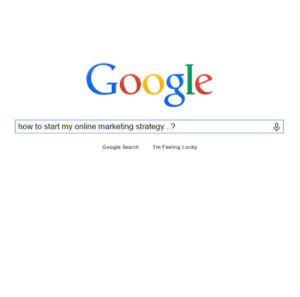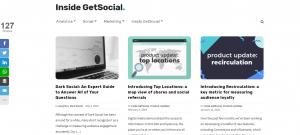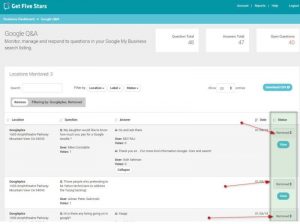— August 23, 2018

PublicDomainPictures / Pixabay
Sea monkeys are brine shrimp. Brine shrimp are incredibly disappointing pets. Yet this bottom-of-the-food-chain critter has been marketed for decades, and millions of children (okay, and at least one adult) have forked over a few bucks, hoping the product in the picture is what will arrive in the mail.
It isn’t, of course, but thanks to Uber, we can keep tabs on our coming disappointment. No, sea monkeys don’t use Uber to get around, but keep in mind that Uber has done more than disrupt the heck out of taxi companies; it, along with Amazon and FedEx have disrupted our expectations as consumers.
Recruiting is a Transaction
Whether we are buying croutons or a cruise, consumers now expect near real-time transparency into our transactions. I would suggest this includes how we apply for jobs. And in this area, I further suggest that current recruiting practices are in a dead heat with sea monkeys for the most disappointing transaction on the planet.

It’s time to stop looking on recruiting as some kind of cross between a talent competition, a staring contest and one of those Magic 8 Balls, and started treating it like the very important transaction that it is.
Sadly, recruiting systems and the processes that support them, are based on the paradigm of keeping all the wrong sorts of people out of organizations, as opposed to letting the right sorts in. That’s rooted in the quaint notion of an abundance of talent.
If we view recruiting, instead, as a marketing transaction, we can begin to see why the whole transparency thing makes sense. As in marketing a product, we build up a great brand, make a bunch of noise so people notice us, dangle flashy job descriptions, tree planting videos and employee testimonials all over the place and, if we’re good at it, our target market responds by clicking the Apply button.
If we were procuring a Pandora charm or a family of adorable sea monkeys, there would be a brief series of things to fill in, followed by an order confirmation and periodic updates on where things are. But most recruiting systems have more in common with Pandora’s box than her eponymous jewelry.
Recruiting’s Corner of Hell
The corner of hell that is most online recruiting sites is not doing any favours for all that employer branding we’ve worked so hard on, are they? Sure, most systems kick back a confirmation that the application went in, but they generally add a stern reminder that only interesting people will ever hear anything. Well there’s a swell first impression.
Yet, when we order the family of sea monkeys, the merchant not only confirms the order, but gives us a reference number and a pretty good idea of when to expect our fun new pets. Plus, if the deluxe sea monkey castle is out of stock, we know right away. Not so when the position we applied for is put on hold, or there’s a hiring freeze, or the hiring manager has been sent away for urgent training.
Once the sea monkeys are in their little box and on their way, we can track more or less every stop on the journey. Job applicants, on the other hand, get to wait. And wait. And wait. Maybe there’s a phone call to set up a screening interview. Maybe an email. Mostly there is silence. And once that screening interview happens, there is silence again. Yet, when our sea monkey family is waylaid by the immigration department, or inadvertently shipped to Nunavut, we can see that disappointing turn of events.
When we have not impressed Bethany, the screener, we can’t see that. We can’t see where we are in the recruiting funnel. We’re not getting a nice note when we are no longer in the recruiting funnel. Many of us find out we’ve fallen out of the funnel when we see the role reposted. Way to go with the branding!
Salespeople will tell you the worst answer isn’t no it’s maybe or it’s silence. No just means you need to try selling to someone else or perhaps clean up your pitch. Salespeople can deal with that. Endless hums and haws and we’re-looking-at-its are just expensive wastes of time. And generally, mean someone is too polite to say no.
Bad Recruiting Erodes Your Employer Brand
The longer your candidates sit around wondering what’s going on, the more your employer brand erodes. This is particularly true if you have candidates well down the funnel who have a reasonable expectation of hearing some kind of update.
I know recruiters are busy and that candidates all want a detailed debrief on why they didn’t make the cut. And I get it that there is just not enough time to offer that. But I would argue most candidates will settle for just knowing if they’re in the damn pool or out.
When things grind to a halt in the end stages, and you want to keep a few candidates warm while you do the references on the preferred person, it’s awfully tempting to communicate nothing. Again, I think a little transparency is a good thing here. Letting candidates know they’re still in the running and when they are likely to hear, builds up your brand by building trust.
This helps candidates make decisions about the other applications they have on the go (really, you thought it was all about you?) and, in the age when we can track our Uber to the nearest six inches, it’s table stakes.
Done right, this should actually save your recruiters from a barrage of follow-up messages from unqualified candidates, and let them focus instead on the good ones. Even more important, it allows you to control the recruiting narrative that swirls around your organization, building up or beating up your employer brand. Keep in mind that Jibe study which found 59% of people who have a poor recruiting experience with your brand will tell others not to apply, and more than half are unlikely to accept an offer even if they survive the experience.
If your candidate experience is generally tied up in prolonged silences, secrecy and nasty auto-generated messages, you should send a package of sea monkeys to each of your candidates. It won’t fix your employer brand, but it will give them something to be slightly less disappointed about
Business & Finance Articles on Business 2 Community
(62)







